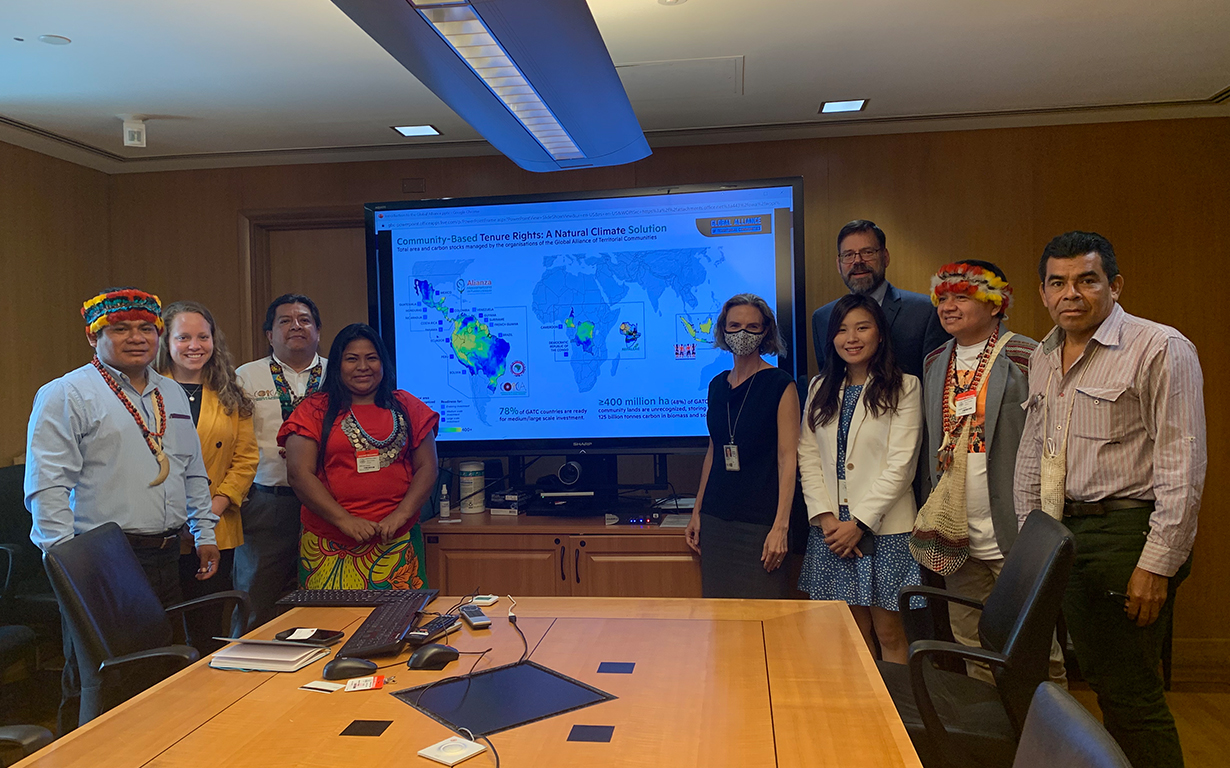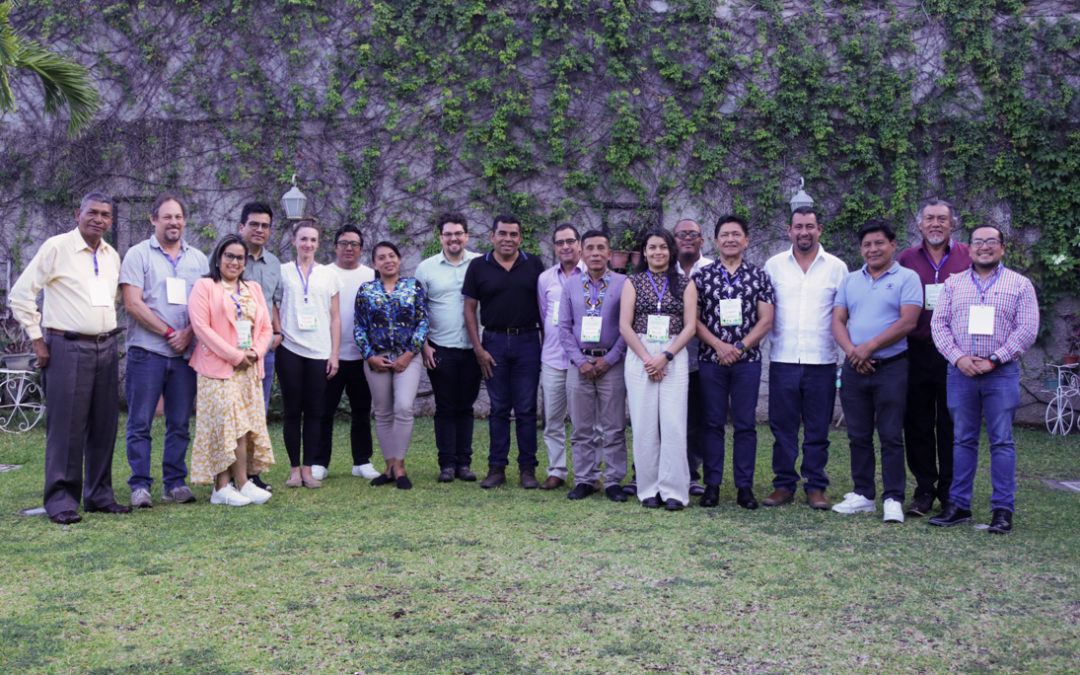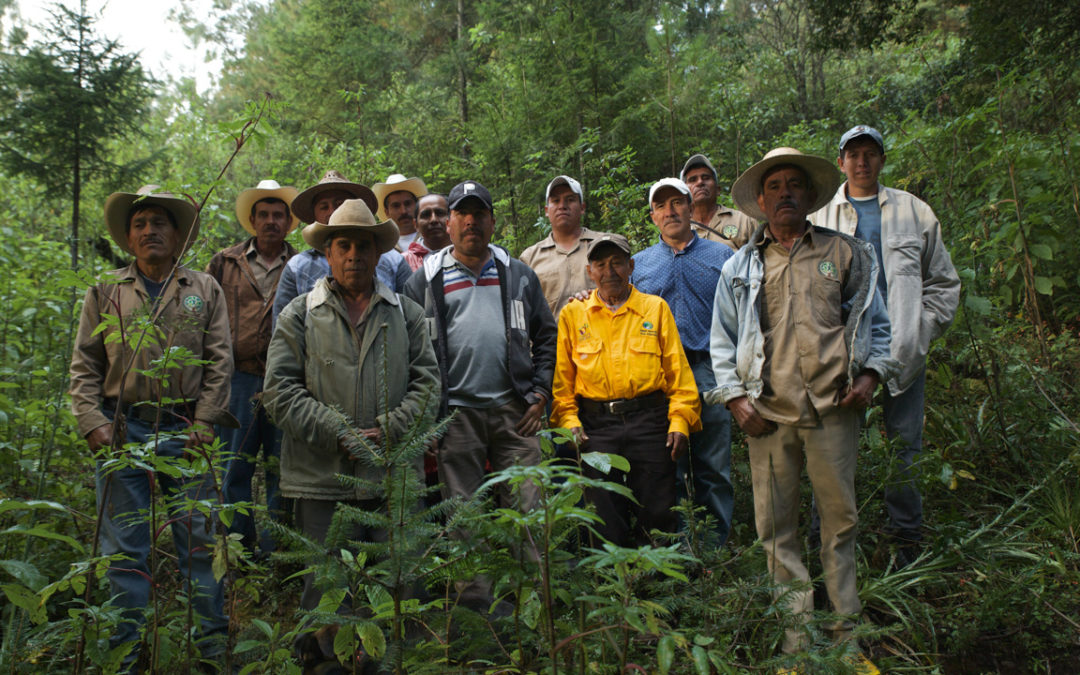The U.S. Department of State and the Global Alliance of Territorial Communities (GATC) had a fruitful discussion on the inclusion of indigenous peoples and local communities in the climate financing and biodiversity protection mechanisms promoted by the country.
In a meeting with Jonathan Pershing, Senior Advisor to the Biden Administration’s Special Envoy on Climate Change, this July 21, in Washington D.C. (USA), a delegation of territorial authorities pointed out the need to include indigenous and local communities in the design of climate funds such as LEAF (Lowering Emissions by Accelerating Forest Finance) and to create communication channels that could bring a new relationship in which communities are partners, and not only beneficiaries .
The delegation also asked the US Administration to adopt the concept of “Nature and Community Based Solutions” as a logical framework that recognizes and promotes communities participation in biodiversity conservation initiatives. In addition, it addressed the central role of indigenous and local women and youth in resilience and adaptation to climate change.
“Without our peoples who manage forests, neither the United States nor the world will be able to reduce emissions by 45% by 2030. We are in a position to move forward together for the good of humanity, and to shift to a model that respects our rights”, said Tuntiak Katan, Shuar leader and General Coordinator of the GATC. Indigenous and local communities’ forested territories hold 14% of the carbon in tropical forests worldwide.
As an outcome, the Global Alliance and the Department of State scheduled follow-up meetings, as well as a process to continue to share information on the vision and demands presented by the leaders in the ongoing mechanisms as well as in the design of new initiatives, including direct territorial financing; the protection of male and female leaders against criminalization and assassinations; rights over territories; Free and Informed Prior Consent; and the respect to ancestral knowledge.
The Department of State leads the foreign policy of the United States and its commercial, social and military relations with other governments through diplomacy, international assistance, and the promotion of the interests of the nation before other governments.
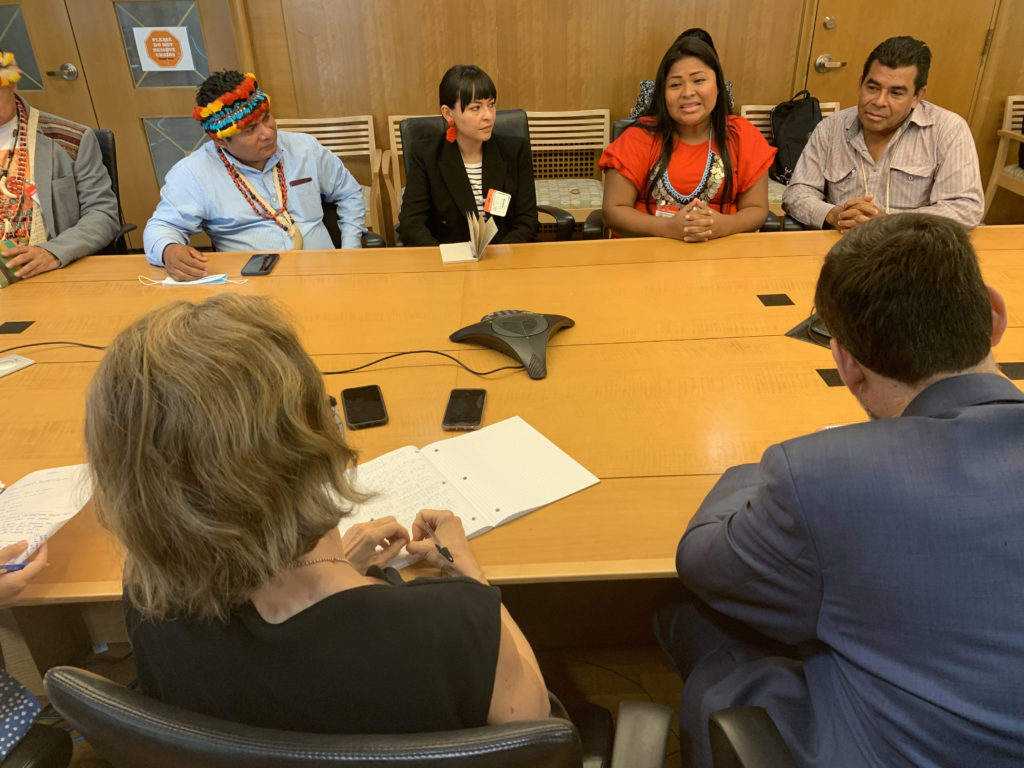
About the mission
The Global Alliance of Territorial Communities holds strategic meetings in Washington D.C. with the aim of learning about ongoing initiatives on climate change and biodiversity, as well as presenting solutions of indigenous peoples and local communities from the world’s tropical forests. The delegation prepares activities in the lead-up to the Conference of the Parties on Climate Change (COP 26 in Glasgow), and the World Conservation Congress, in Marseille.
The delegation is formed by Tuntiak Katan, General Coordinator of the GATC; Gregorio Mirabal, General Coordinator of the Coordinator of Indigenous Organizations of the Amazon Basin (COICA); Levi Sucre, Coordinator of the Mesoamerican Alliance of Peoples and Forests (AMPB); Sara Omi, from the GATC women’s coordination and President of the Coordinator of Territorial Women Leaders of Mesoamerica; Juan Carlos Jintiach, Co-President of the United Nations Global Indigenous Caucus, and COICA technical advisor on international policies, climate change and biodiversity of indigenous peoples.
About the Global Alliance of Territorial Communities
The Global Alliance of Territorial Communities is a coalition of Indigenous and local communities of the Amazon Basin, Brazil, Indonesia and Mesoamerica. Together we represent more than 35 million people among forest territories in 18 countries, and protect more than 840 million hectares of tropical forests. Four territorial organizations make up our alliance: The Coordinator of Indigenous Organizations of the Amazon Basin (COICA), the Articulation of the Indigenous Peoples of Brazil (APIB), the Mesoamerican Alliance of Peoples and Forests (AMPB) and the Alliance of Indigenous Peoples of the Archipelago (AMAN).
